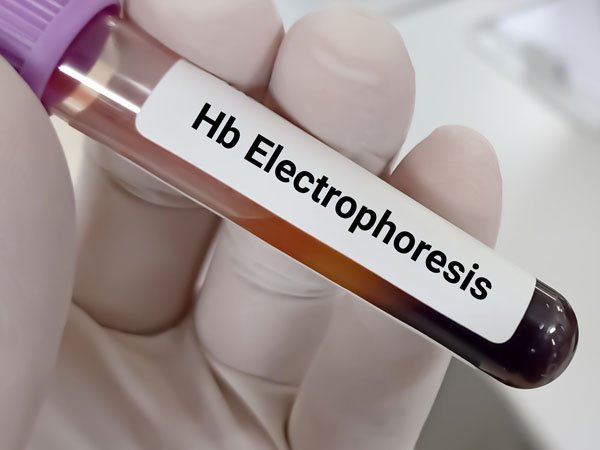Moderate or severe Beta Thalassemia Major are often diagnosed in childhood because symptoms usually appear within the first two years of your child’s life. Your healthcare provider may order various blood tests to diagnose Thalassemia:
- A complete blood count (CBC) that includes measures of hemoglobin and the quantity (and size) of red blood cells. People with Thalassemia have fewer healthy red blood cells and less hemoglobin than normal. They may also have smaller-than-normal red blood cells.
- A reticulocyte count (a measure of young red blood cells) may indicate that your bone marrow isn’t producing enough red blood cells.
- Studies of iron will indicate whether the cause of your anemia is an iron deficiency or Thalassemia.
- Hemoglobin electrophoresis is used to diagnose beta Thalassemia
- Genetic testing is used to diagnose alpha Thalassemia.
